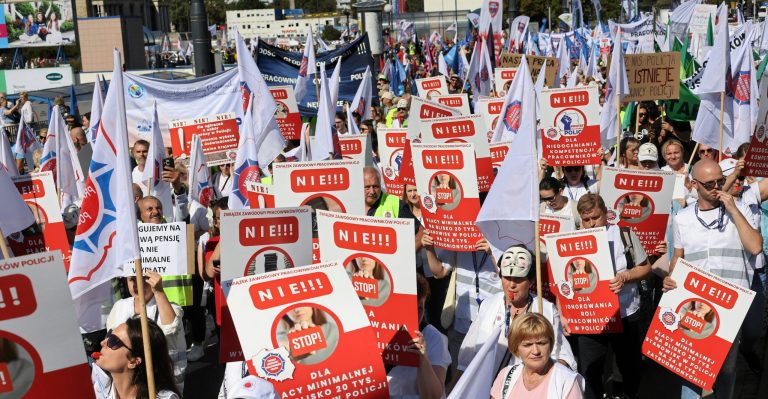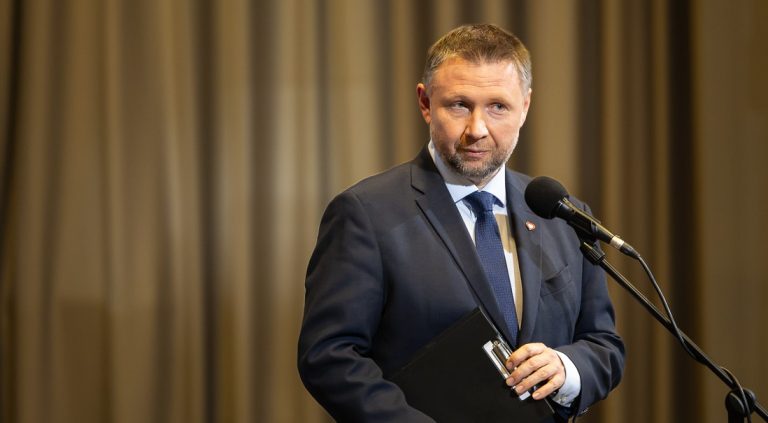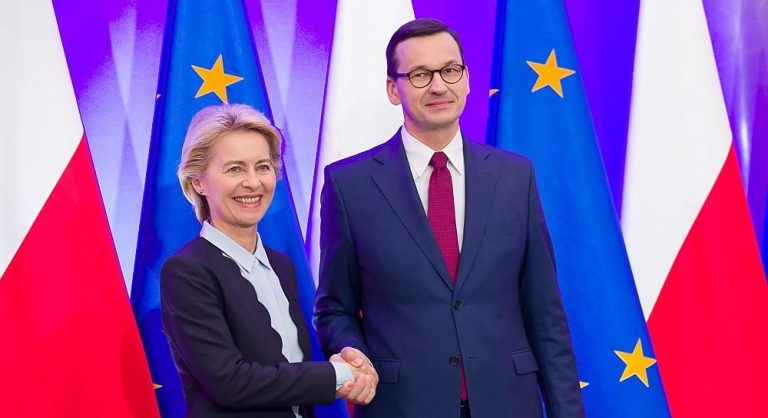Poland to establish EU-funded “foreigner integration centres” to serve growing number of migrants
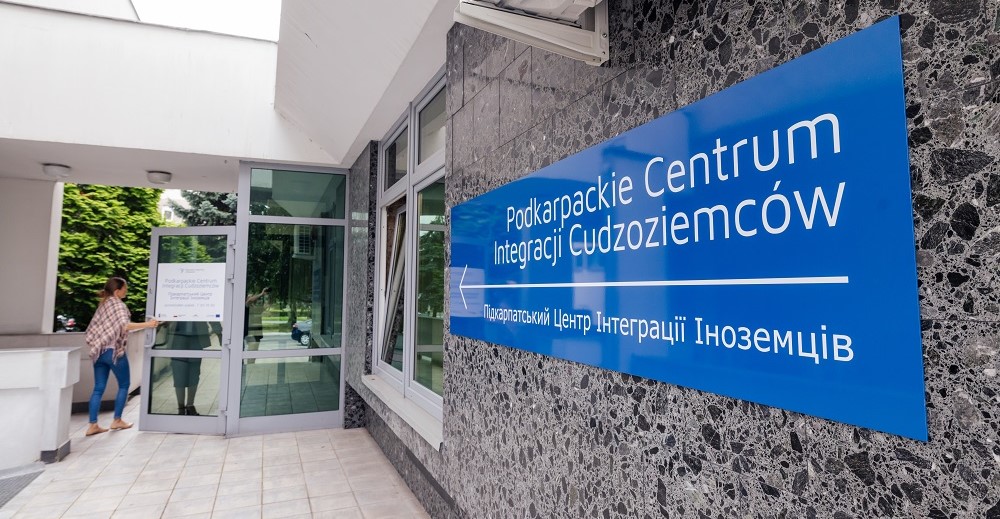
Keep our news free from ads and paywalls by making a donation to support our work!
Notes from Poland is run by a small editorial team and is published by an independent, non-profit foundation that is funded through donations from our readers. We cannot do what we do without your support.
Poland is establishing 49 new “integration centres for foreigners” across the country to “provide standardised services to newly arrived migrants and serve as platforms for cooperation between local authorities, the government and NGOs”, the European Commission has announced.
The EU-funded centres will offer, among other things, courses in the Polish language and in adaptation, information and advisory points, psychological care, and various forms of legal assistance, including to prevent domestic violence and human trafficking
The development comes amid levels of immigration to Poland in recent years that are unprecedented in the country’s history and also among the highest anywhere in Europe.
For the last seven years running, Poland has issued more first residence permits to immigrants from outside the EU than any other member state. At the end of 2023, there were 1.13 million foreigners registered in Poland’s social insurance system (ZUS), making up almost 7% of all those in the system.
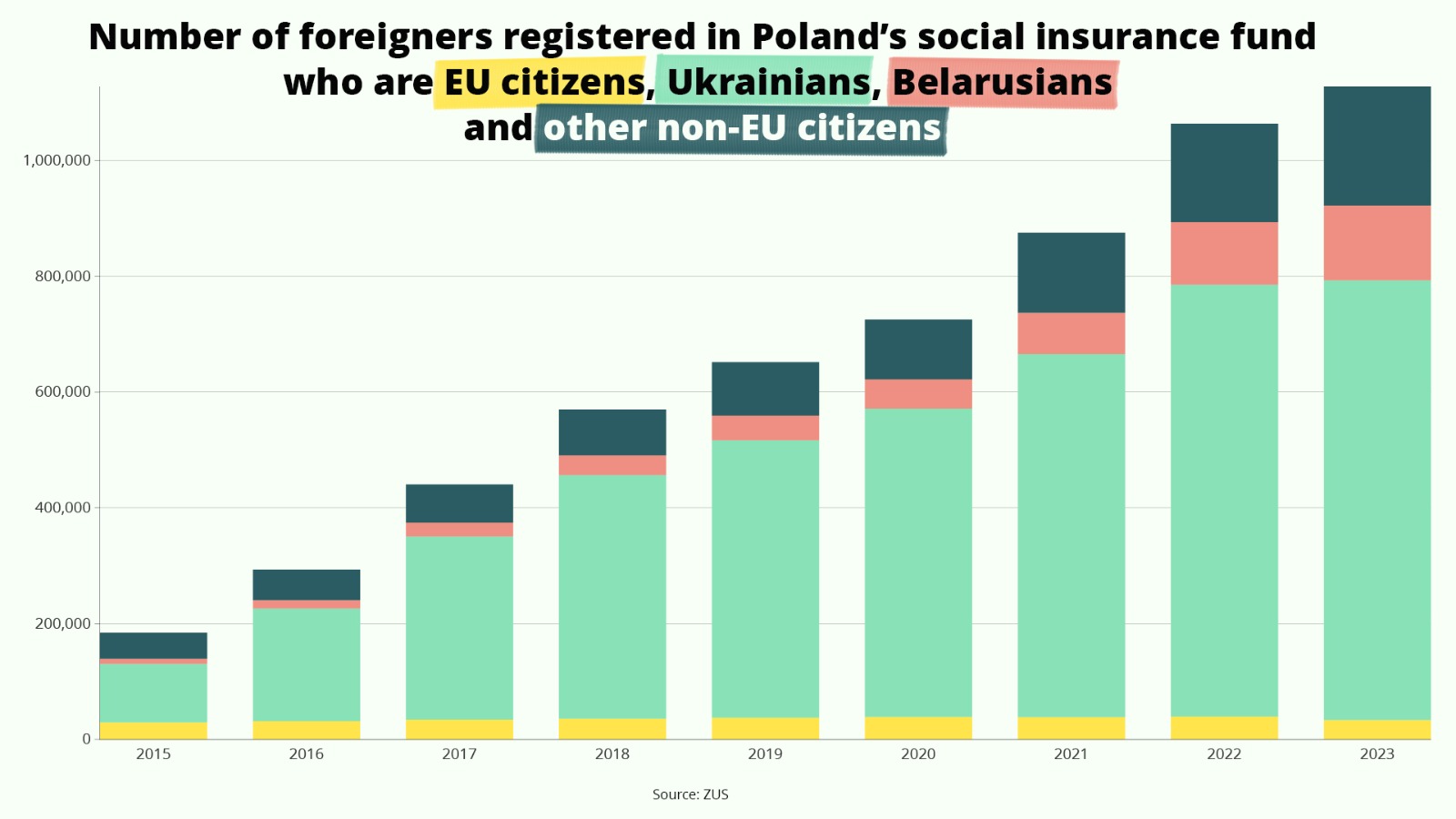
However, the state auditor warned in March this year that the influx of migrants – which since 2022 has also included large numbers of Ukrainain refugees – has left state offices “unable to cope”.
The newly planned centres will function as “one-stop shops”, making it possible for foreigners to access various services in a single place. They will be allowed to use the facilities until submitting an application for a long-term EU residence permit (which requires a minimum level of Polish).
The centres will be set up by local authorities in Poland’s 16 provinces, in cooperation with other institutions dealing with migrants, including at least one non-governmental organisation experienced in working with migrants.
While the current plans for the facilities were outlined in March this year by the government that took office three months earlier, the idea for the integration centres was first developed and piloted under the former government.
Although the facilities will be run by provincial authorities, the programme for the adaptation and orientation courses will be standardised nationwide. It will cover themes including Poland’s history, constitutional principles, political and administrative system, and cultural heritage, as well as education, health, economy and society.
The centres may also provide additional services, such as language courses at more advanced levels, psychological support for adults, trips for children, information campaigns, translation, and support from a personal assistant in offices, schools and medical centres.
According to the government’s outline, the concept of the centres should be based on the twin idea that “we demand and we support”, meaning they will provide immigrants with solutions that will help them integrate better into Polish society.
Mass immigration has left Poland’s public administration “unable to cope”, reports the state audit office.
It found that applications for residence permits take an average of one year to process, with one individual waiting over seven years for a decision https://t.co/lXLquxNneN
— Notes from Poland 🇵🇱 (@notesfrompoland) March 20, 2024
The government also hopes that, by establishing a clearer registration obligation for foreigners, it will be possible to more accurately determinate their number and geographical distrubition.
The centres are funded by the European Commission’s Asylum, Migration, and Integration Fund (AMIF) but are also expected to seek other sources of funding, such as the European Social Fund, the Polish government’s labour fund, and funds from local budgets.
The facilities will be part of Poland’s new migration policy for 2025-2030, a draft of which is set to be presented by Prime Minister Donald Tusk tomorrow.
The ministry for family, labour and social policy has so far not responded to a request from Notes from Poland for comment on the new foreigner integration centres.
The “brutal truth” is that the “survival of Western civilisation” depends on preventing “uncontrolled migration”, says Polish Prime Minister @donaldtusk.
„We [must] wake up and understand that we have to protect our borders…[or] our world will collapse” https://t.co/mPwGIMCoU9
— Notes from Poland 🇵🇱 (@notesfrompoland) February 12, 2024

Notes from Poland is run by a small editorial team and published by an independent, non-profit foundation that is funded through donations from our readers. We cannot do what we do without your support.
Main image credit: MFiPR (under CC BY-NC-ND 3.0 PL)
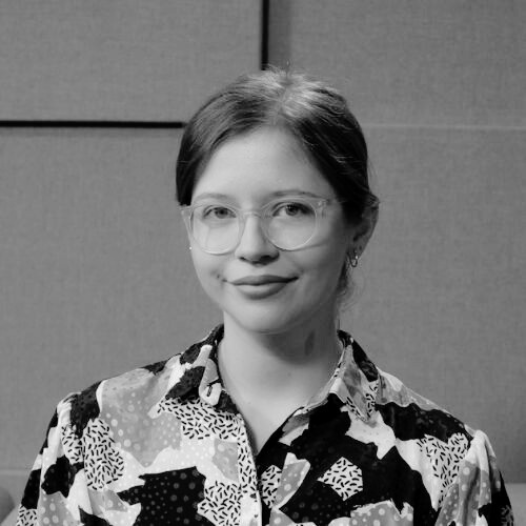
Agata Pyka is an assistant editor at Notes from Poland. She is a journalist and a political communication student at the University of Amsterdam. She specialises in Polish and European politics as well as investigative journalism and has previously written for Euractiv and The European Correspondent.




